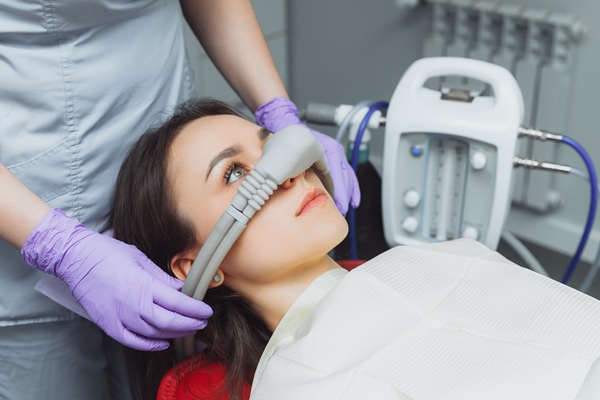Tips to Overcome Dental Anxiety To Seek Routine Dental Care

Maintaining healthy teeth and gums does more than ensure a strong and beautiful smile. Proper routine dental care also helps lower the risks of developing many serious diseases, including certain cancers, heart problems, and diabetes. However, patients who struggle with dental anxiety may fail to stick with a regular cleaning and checkup schedule. As a result, these people are more likely to face decay, gum disease, and the need for extensive dental work. Fortunately, there are ways to treat dental anxiety, reduce symptoms, and experience a less stressful visit to the dentist office.
5 tips for dealing with dental anxiety
There are many simple ways to alleviate anxiety during a dental checkup. These tips can help patients feel more calm during visits.
1. Practice better home care
For some people, the fear of pain or embarrassment from unhealthy teeth and gums can be avoided with proper home care practices. Patients should strive to brush at least twice a day, floss once, and use a mouthwash occasionally to help kill unwanted bacteria. As a result, patients can experience less swelling, tenderness, and bleeding during a cleaning while enjoying better oral health as well.
2. Make a list of concerns
Patients with dental anxiety can benefit from making a detailed list of all of their fears before making an appointment for routine dental care. This can help pinpoint the true source of the anxiety for better preparation. As well, by sharing this list with the dentist, a customized treatment plan may be created to meet the patient’s needs.
3. Choose a more compassionate dentist
Some dental offices focus on helping patients overcome dental phobias. Many of the staff members in these locations can offer a more gentle and kind approach for sensitive patients. The offices may also be equipped with upgrades to help patients feel more at ease.
4. Practice relaxation exercises
Meditation, yoga, and breathing exercises can all help a person feel more calm during a stressful situation. By mastering these practices ahead of time, patients can utilize them at any time during an appointment to reduce anxiety symptoms.
5. Bring wireless headphones to the office
Many people find that it is helpful to listen to calming music or a funny podcast when visiting the dentist. Arriving early can give a patient more time to relax while sitting in the waiting room. It is a good idea to start listening during this time. Then, when the patient transitions into the room for treatment, they are already distracted and more at ease, and can continue to listen throughout the duration of the appointment.
Conclusion
Dental anxiety is a relatively common condition. However, if severe anxiety is getting in the way of routine dental care, it is important to take action to reduce and prevent symptoms. Patients who are still unable to cope may need to seek out therapy options so that proper oral health can be maintained.
Request an appointment here: https://www.annarborpersonaltouchdentistry.com or call Shiva G. Rad, D.D.S. at (734) 436-0817 for an appointment in our Ann Arbor office.
Check out what others are saying about our dental services on Yelp: Routine Dental Care in Ann Arbor, MI.
Recent Posts
A deep teeth cleaning is not just a procedure needed after skipping dental visits. Instead, a deep teeth cleaning is designed to help combat periodontal disease and gum recession, both of which can lead to irreversible oral health problems. Of course, some individuals who skip routine maintenance from the dentist may need a deep teeth…
Dental exams are an important part of visiting a general dentist. The examination portion of the appointment is crucial in catching any warning signs that may indicate problems, such as cavities or gum disease. In particular, gum disease can be difficult to notice as it may present itself without any major warning signs. With that being…
In general dentistry, cracked teeth are, unfortunately, a common problem that requires attention. Thankfully, modern-day dentistry has created a few different options that can solve the problem of a cracked tooth. In most situations, a general dentist can salvage a cracked tooth; however, it is important to know that there are a few factors that…
A general dentist performs most of the treatments commonly used in dentistry. These oral professionals spend most of their time performing preventative treatments, like tooth cleanings, but they also perform more complex treatments, like root canals. A general dentist also serves as an educator, teaching patients how to properly take care of their teeth and…


